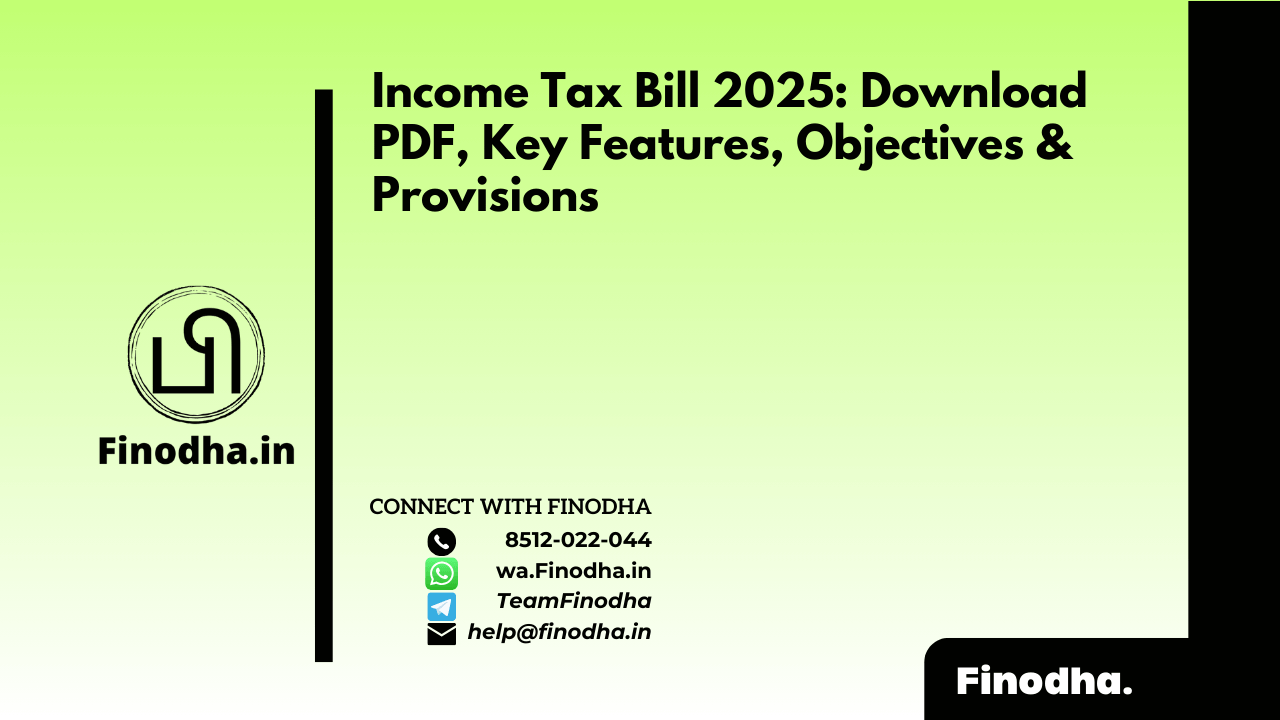Important Keyword: Due date, ITR Form, Kotak Securities, P&L Statement, Tax Audit, Trading Income.
Table of Contents
How to File ITR for Kotak Securities?
As a trader with Kotak Securities, it’s essential to navigate the complexities of filing your income tax return (ITR) correctly, especially if your earnings stem from equity trading, mutual funds, or derivatives. Kotak Securities facilitates this process by providing a Tax P&L Report summarizing your trading activities throughout the financial year. This report serves as a crucial tool in determining the appropriate ITR Form to use and assessing whether a Tax Audit is necessary.
For traders, understanding which ITR Form aligns with their income profile is key. The Tax P&L Report from Kotak Securities consolidates all trading transactions, offering clarity on gains, losses, and overall profitability. This detailed breakdown simplifies the filing process, ensuring compliance with tax regulations while maximizing potential deductions and exemptions.
Tax P&L Report Tabs Explained

When managing your taxes as a trader with Kotak Securities, it’s important to understand the nuances of filing your Income Tax Return (ITR) correctly. Kotak Securities provides detailed segment statements rather than a consolidated Tax P&L Statement. This means you’ll need to download statements for each segment separately, such as equity, derivatives, and mutual funds.
To determine the appropriate ITR Form for your filing, consider the nature of your income:
- Income from Trading:
- If your income primarily consists of capital gains from trading, you should file ITR-2. This form is suitable for reporting income from investments, including gains or losses from equity trading and mutual funds.
- Business Income:
- If your trading activities are substantial and qualify as business income (such as frequent trading in derivatives or speculative activities), you should file ITR-3. This form is designed for individuals and Hindu Undivided Families (HUFs) who have income from business or profession.
Key Components of Tax P&L Statements:
- Cost Basis: The original value of assets for tax purposes, adjusted for factors like stock splits and dividends.
- Proceeds: Cash received from selling assets, categorized as gross or net based on transaction details.
- Square Off: A trading strategy involving the purchase and subsequent sale (or vice versa) of assets within the same trading day.
Due Date for Filing ITR:
ITR filing deadlines are specified under Section 139 of the Income Tax Act and vary based on the type of taxpayer. Generally, for individuals and HUFs not subject to audit, the due date is July 31st of the assessment year following the financial year.
Ensuring accurate and timely filing of your ITR is crucial to compliance with tax regulations. By using the segmented statements provided by Kotak Securities and understanding the distinctions between ITR-2 and ITR-3, you can effectively report your trading income and fulfill your tax obligations efficiently. Due dates for different category of taxpayers are as follows:
| Category | Due Date |
| Individuals to whom audit is not applicable | 31st July of the Assessment Year |
| Companies | 30th September of the Assessment Year |
| Individuals to whom audit is applicable | 30th September of the Assessment Year |
| Individuals/ HUF who are partners in a firm and firm’s accounts are subject to audit | 30th September of the Assessment Year |
The above due dates can be extended by the IT Department via order.
Tax Audit Applicability
For stock traders engaged in various types of trading activities such as Equity Intraday, Equity Futures & Options (F&O), Commodity Trading, and Currency Trading, it’s crucial to understand the tax implications, particularly whether Tax Audit under Section 44AB of the Income Tax Act applies.
Nature of Income:
Income derived from trading in shares, securities, commodities, and currencies is treated as Business Income if:
- Equity Intraday: Buying and selling of stocks on the same day.
- Equity Futures & Options (F&O): Contracts traded on the stock exchanges for futures and options.
- Commodity Trading: Trading in commodities on recognized commodity exchanges.
- Currency Trading: Trading in foreign currencies through recognized platforms.
Applicability of Tax Audit:
Tax Audit under Section 44AB becomes applicable if the turnover from these trading activities exceeds certain thresholds:
- Turnover Limit under Sec 44AB:
- The turnover threshold for applicability of Tax Audit is typically Rs. 1 crore.
- However, Budget 2020 increased this threshold to Rs. 5 crore, provided certain conditions are met:
- Cash Payments should not exceed 5% of the Total Payments in the financial year.
- Cash Receipts should not exceed 5% of the Total Receipts in the financial year.
Calculation of Trading Turnover:
- Definition: Trading turnover refers to the total of the amounts received or receivable from the sale of goods or services in the financial year.
- Importance: It’s essential to calculate trading turnover accurately to determine whether Tax Audit is mandatory under the Income Tax Act.
Distinction between Business Income and Capital Gains:
- Business Income: Income from trading activities as part of a business or profession.
- Capital Gains: Income from the sale of assets such as stocks or securities held as investments.
Read More: How to File ITR for Motilal Oswal?
Web Stories: How to File ITR for Motilal Oswal?
Official Income Tax Return filing website: https://incometaxindia.gov.in/




